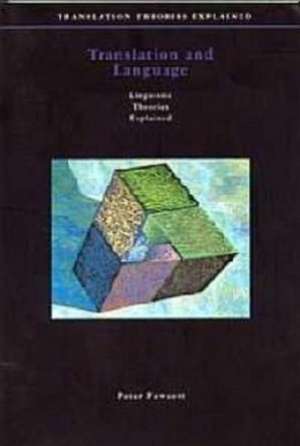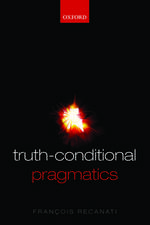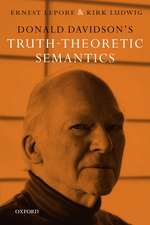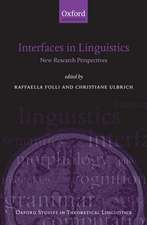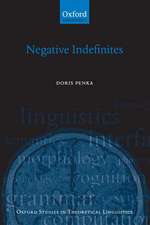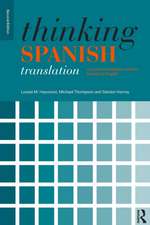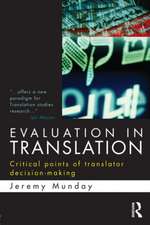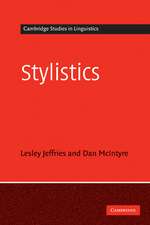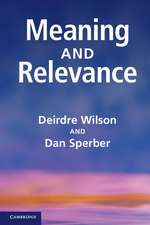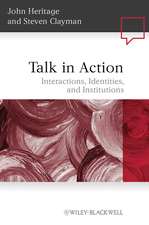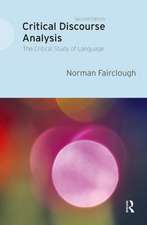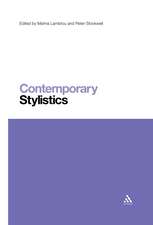Translation and Language: Translation Theories Explored
Autor Peter Fawcetten Limba Engleză Paperback – sep 1997
This work is exceptional in that it presents theories originally produced in Russian, German, French and Spanish as well as English. Its broad coverage and accessible treatment provide essential background reading for students of translation at all levels.
| Toate formatele și edițiile | Preț | Express |
|---|---|---|
| Paperback (1) | 374.27 lei 6-8 săpt. | |
| Taylor & Francis – sep 1997 | 374.27 lei 6-8 săpt. | |
| Hardback (1) | 1000.27 lei 6-8 săpt. | |
| Taylor & Francis – 31 mar 2016 | 1000.27 lei 6-8 săpt. |
Preț: 374.27 lei
Nou
Puncte Express: 561
Preț estimativ în valută:
71.61€ • 74.78$ • 59.14£
71.61€ • 74.78$ • 59.14£
Carte tipărită la comandă
Livrare economică 15-29 aprilie
Preluare comenzi: 021 569.72.76
Specificații
ISBN-13: 9781900650076
ISBN-10: 190065007X
Pagini: 172
Ilustrații: glossary, bibliography
Dimensiuni: 152 x 229 x 9 mm
Greutate: 0.56 kg
Ediția:1
Editura: Taylor & Francis
Colecția Routledge
Seria Translation Theories Explored
Locul publicării:Oxford, United Kingdom
ISBN-10: 190065007X
Pagini: 172
Ilustrații: glossary, bibliography
Dimensiuni: 152 x 229 x 9 mm
Greutate: 0.56 kg
Ediția:1
Editura: Taylor & Francis
Colecția Routledge
Seria Translation Theories Explored
Locul publicării:Oxford, United Kingdom
Public țintă
Postgraduate and UndergraduateCuprins
1. Introduction
A troubled relationship
Langue/parole
Signifier/signified
Paradigmatic and syntagmatic: word sets and collocations
Sociolinguistics and pragmatics
2. Sub-Word Components
Sound
Morphemes
Componential analysis
3. Semantics
Semantic fields
Word relations
Connotation
Word meaning and translation
4. Translation Techniques
Russian approaches (Shveitser and Retsker)
Translation as 'analogy'
Translation as 'adequacy'
Concretization
Logical derivation
Antonymic translation
Compensation
The view from Canada (Vinay and Darbelnet)
Borrowing
Calque
Literal translation
Transposition
Modulation
Équivalence
Adaptation
An American model (Malone)
Matching: Substitution and Equation
Zigzagging: Divergence and Convergence
Recrescence: Amplification and Reduction
Repackaging: Diffusion and Condensation
Reordering
Critique
5. Equivalence
Catford and textual equivalence
Kida and dynamic equivalence
Komissarov's sharp and fuzzy equivalence
6. Beyond the Word
Generative grammar
Shveitser: translation and rewriting rules
Malone and bridge building
7. Beyond the Sentence: Context and Register
Context
Communicative event and register
Register
Register and language user
Register and language use
Register in paractice
8. Text Structure
Theme/rheme and functional sentence perspective
Cohesion
Cohesion through repetition
Cohesion through ellipsis
Cohesion through reference
Parataxis and hypotaxis
Coherence
Translation as text
9. Text Functions
Language functions
Text functions and types
Reiss and the monofunctional approach
The multifunctional approach
Function-altering translation
Overt and covert translation
10. Sociolinguistics
11. Pragmatics
Presupposition
Speech acts
Implicature
12. Psycholinguistics
Relevance theory
Translation strategies
Conclusion and Perspectives
A troubled relationship
Langue/parole
Signifier/signified
Paradigmatic and syntagmatic: word sets and collocations
Sociolinguistics and pragmatics
2. Sub-Word Components
Sound
Morphemes
Componential analysis
3. Semantics
Semantic fields
Word relations
Connotation
Word meaning and translation
4. Translation Techniques
Russian approaches (Shveitser and Retsker)
Translation as 'analogy'
Translation as 'adequacy'
Concretization
Logical derivation
Antonymic translation
Compensation
The view from Canada (Vinay and Darbelnet)
Borrowing
Calque
Literal translation
Transposition
Modulation
Équivalence
Adaptation
An American model (Malone)
Matching: Substitution and Equation
Zigzagging: Divergence and Convergence
Recrescence: Amplification and Reduction
Repackaging: Diffusion and Condensation
Reordering
Critique
5. Equivalence
Catford and textual equivalence
Kida and dynamic equivalence
Komissarov's sharp and fuzzy equivalence
6. Beyond the Word
Generative grammar
Shveitser: translation and rewriting rules
Malone and bridge building
7. Beyond the Sentence: Context and Register
Context
Communicative event and register
Register
Register and language user
Register and language use
Register in paractice
8. Text Structure
Theme/rheme and functional sentence perspective
Cohesion
Cohesion through repetition
Cohesion through ellipsis
Cohesion through reference
Parataxis and hypotaxis
Coherence
Translation as text
9. Text Functions
Language functions
Text functions and types
Reiss and the monofunctional approach
The multifunctional approach
Function-altering translation
Overt and covert translation
10. Sociolinguistics
11. Pragmatics
Presupposition
Speech acts
Implicature
12. Psycholinguistics
Relevance theory
Translation strategies
Conclusion and Perspectives
Recenzii
The author has brought together a wealth of theoretical ideas and concepts, which are synthesized with admirable clarity, and treated thoughtfully. (Sun Yifeng, Translation Quarterly)
... essential introductory reading to novices in translation studies, but ... also a very wise choice for both translation scholars and skeptical linguistis. (Sara Oliviera, Cadernos de Tradução)
... essential introductory reading to novices in translation studies, but ... also a very wise choice for both translation scholars and skeptical linguistis. (Sara Oliviera, Cadernos de Tradução)
Descriere
Translation Studies and linguistics have been going through a love-hate relationship since the 1950s
